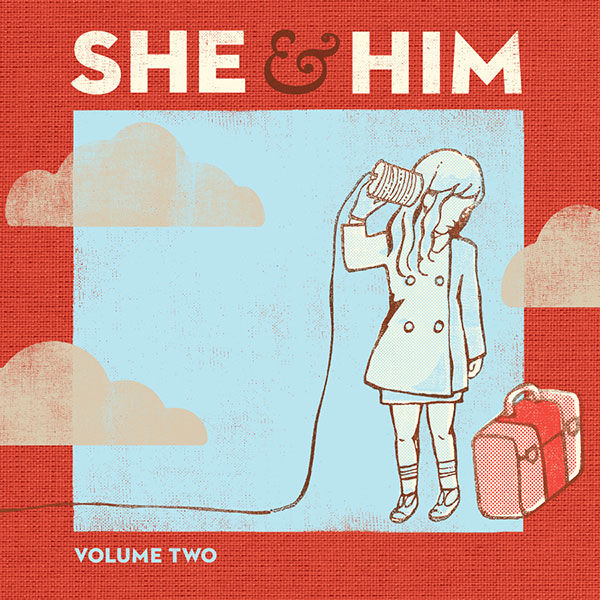Two years after the first volume, She & Him’s second album picks up exactly where the last one left off, but also with more confidence and solidarity. For instance, Zooey Deschanel and M. Ward enlist the help of Tilly & The Wall on the single “In The Sun” to execute a catchy call-and-response and creates an arrangement so full it brings to mind Phil Spector’s Wall of Sound. The track sets the tone for the rest of the album, with every song stuffed with rich musicality and ’50s/’60s/’70s AM radio styles.
That latter detail though is what ruins this album. It is so passive and saccharine and that you are left wondering what was the whole point. No doubt that Deschanel and Ward are having a lot of fun in their rose-tinted nostalgia for their parents’ favorite records, but it goes nowhere and the shallowness is a turn-off. Ward’s string arrangements and studio production is par for the course, but the man makes no daring moves to push it anywhere beyond audible white bread. Compared to Jim O’Rourke’s love of Burt Bacharach, which led that man to do a cover of “Something Big” that turned the song around from a proclamation of optimism to a melancholic anthem of self-loathing, Ward’s love of Laurel Canyon and Hollywood & Vine lamely stops in mere copy-cat territory. Next time you’re at a garage sale or flea market, pick up any numerous compilations of Les Paul & Mary Ford, Phil Spector, Beach Boys or LA sunshine pop if you think this is a false claim.
Volume One ended with a hidden track, an acapella cover of “Swing Low, Sweet Chariot” that is the opposite of the songs on this current album (and of the ones on Volume One, for that matter). It is rife with decay – the first sound you hear is a fade in to machine noise that would be considered a “bad move” in the pop arena. It inexplicably takes you back to a time older than the records Deschanel and Ward ape on Volumes One and Two, when popular song forms we take for granted now, were just coming to be. Indeed, the vocal humming that backs Deschanel’s slow, sultry delievery is incredibly bare-bones, raw, primitive (perhaps American Primitive, to use John Fahey’s label of this kind of music). An album where our duo here dives into that world and goes in that direction, would be something of if not artistic than sonic wonder, and far more interesting. Until then, we have this album to have on as wall paper for days when we just want empty, sugary background sweetness.

